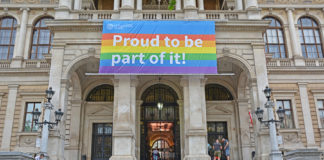
Like many professional women, Ms. Middaugh, the lawyer in San Diego, put off having children through her 20s and 30s as she built her career and grappled with student loans. When she was around 36, however, she decided it was time to act.
She and her husband had a difficult time conceiving, so they began fertility treatments shortly before the pandemic, when she was 39. Then came the lockdown. The fertility clinic closed for months. She had time to consider the world her child might face.
Not only was she horrified by the lack of a unified response to coronavirus, but on a trip home to Alaska, she visited beaches that, as a child, she remembered teeming with starfish, otters, and fat, briny mussels, but now seemed denuded of wildlife.
It was too much. She postponed her plans for IVF, although her husband is still pushing. “I’ve been asking myself, ‘If I don’t have a baby or at least really try, will I be sad or regret it forever?’” she said. “I don’t know, and can’t really know, but I don’t want to let that alone push me into making a choice to go ahead with trying.”
Such questions are not confined to heterosexual women in monogamous relationships. Single women, husbands, gay couples, as well as people found on any point of the gender spectrum, all have the choice to procreate — and the choice not to.
“As I think of it, having a child is like rolling dice with the child’s life in an increasingly uncertain world,” said Michael Ellsberg, 44, a writer in Berkeley, Calif. “Sure we might figure out how to limit global warming to 1.5 or 2 degrees Celsius. We might figure out how to cooperate as a globe to prevent future pandemics. We might figure out how to limit the risks of nuclear war and terrorism. But we might not.”








